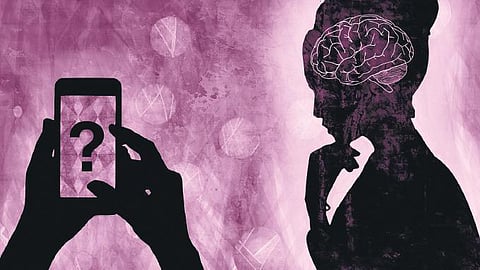

HYDERABAD: We are what we eat. The same applies to our mind too. The mind shapes itself with the content we feed it: what we watch, read, listen and see. In the age of the Internet, where content overload is commonplace, we speak to psychologists about the need to be conscious about what we feed our mind.
The easy access to information has created an illusion of being highly informed and up-to-date. But, is everything that we grasp coming from an authentic and reliable source? In fact, does it help us in anyway?
“People are developing symptoms of hypochondria (health anxiety) because they think even a simple infection is something serious. If you type headache on a search engine, it would suggest that you might have something like a tumor, but in reality, it is nothing serious,” says Dr Venkata Subbaiah, a psychologist at the Institute of Mental Health, Erragadda. “We must be conscious about what we are feeding our mind with. "
"There is a simple trick to that: just stop when you find yourself getting obsessed with something. Pause, think and reflect without searching the net about how to think and reflect on,” he says. Books are the best way to absorb information. “We can read faster than we can listen."
"On an average, we hear about 100-160 words a minute, whereas we can read up to 300 words in the same time. The best part about books is that they can open up our minds in layers and provide us well-researched, reliable content,” says V Vimala, a corporate trainer, and motivational speaker.
On video-logging platforms, content is easier to generate, but can sometimes lack depth and authenticity. “We must be careful about what we watch. This applies to even while watching movies online or searching for information. We have to take the time out to think if this information is going to be useful to us or harm us,” says Priyanka, a city-based psychologist.
The mind shapes itself with the content we feed it